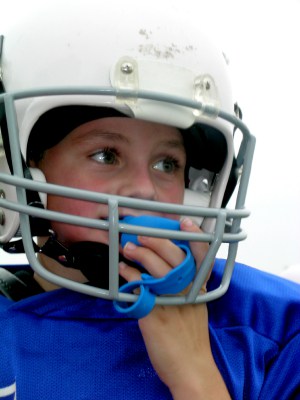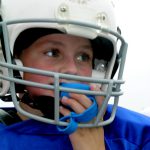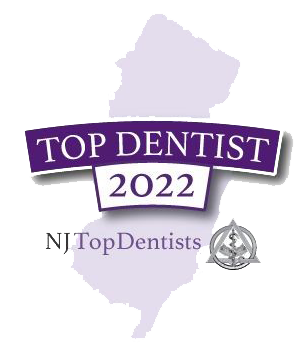
How to Prevent Jaw Trauma and Avoid TMD

 Just like any other joint, the temporomandibular joint (TMJ) is vulnerable to trauma or a fracture. Blunt force may injure/break/dislocate the TMJ directly; or, the muscles around the TMJ can become injured, which puts additional stress on the TMJ. In either scenario, the trauma to the TMJ may eventually lead to temporomandibular joint disorder (TMD).
Just like any other joint, the temporomandibular joint (TMJ) is vulnerable to trauma or a fracture. Blunt force may injure/break/dislocate the TMJ directly; or, the muscles around the TMJ can become injured, which puts additional stress on the TMJ. In either scenario, the trauma to the TMJ may eventually lead to temporomandibular joint disorder (TMD).
There are a few things that you can do to minimize your risk of jaw trauma. Here, the Headache and TMJ Center of New Jersey offers a few suggestions.
Wear Sports Protection
Contact sports like football and boxing are a common cause of all kinds of fractures, including jaw fracture. You must protect your jaw from sudden impacts in the same way that you protect other joints, such as your knees and shoulders.
Experts strongly recommend wearing a mouth guard to protect the jaw from blunt force. Ideally, a sports mouth guard should:
- Facilitate easy breathing function through the mouth
- Remain stable, even during vigorous activity
- Protect the front teeth
- Not interfere with speech
- Be large enough to prevent it from being inhaled or swallowed
Wear a Seat Belt/Helmet
Motor vehicle and bicycle accidents are another common cause of jaw trauma. If you fall off your bike or are thrown from your car in an accident, blunt force can break or dislocate your jaw. Take safety precautions like wearing a seat belt in a car and a helmet when riding a bike. Use defensive driving techniques and follow the rules of the road while riding your bike on busy streets.
Keep Your Teeth and Gums Healthy
Another threat to the health of your jawbone is serious tooth or gum infection. If an untreated infection advances to the final stages, it may lead to the deterioration of the jawbone (and cause TMD symptoms).
Keep your teeth and gums healthy by brushing and flossing daily, eating a healthy diet and visiting your dentist at least once a year for a professional exam and cleaning. If you notice any signs of tooth or gum infection (e.g., bleeding, swelling, pus), contact your dentist immediately to have the problem area examined.
If You Think You May Have TMD
Despite your best attempts to protect yourself from injury, jaw injuries do happen. If you had an accident and experience painful symptoms around your TMJ, schedule an examination with our team. If we diagnose you with TMD, we can evaluate your treatment options and begin to soothe your pain.
To book an appointment with our TMJ dentists, contact Headache and TMJ Center of New Jersey by calling (855) 865-3627.

